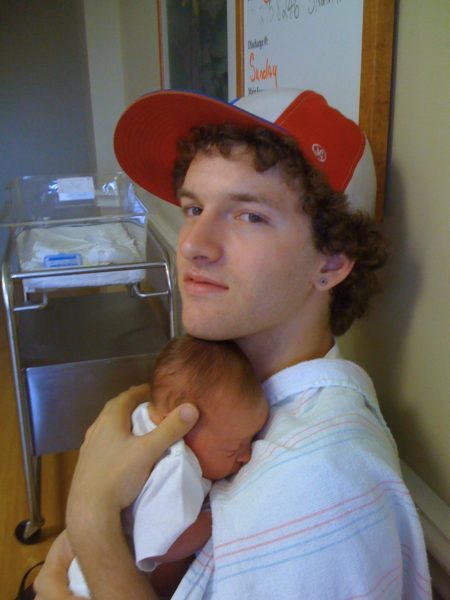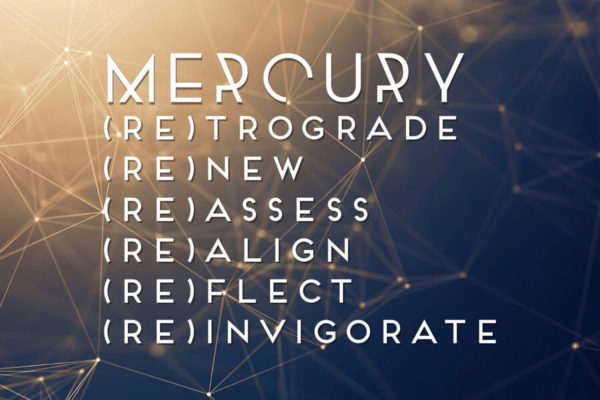The rest of this week will be busy in preparation for our trip with Arleen to the Grand Canyon, Sedona, Lake Powell and other places. Plus, Annika has her orientation for medical school tomorrow and her White Coat Ceremony Thursday night. Then we leave early Friday morning for the trip. Because of the ceremony Thursday, there will be no radio show. Sorry!
Enjoy what Erik has to say about destiny.
Me: Let’s talk about destiny, Erik. Can you talk about the spiritual contracts souls make before incarnating?
(Pause)
Jamie (sternly): Okay, straighten up, Erik. Come on. (To me): Okay, so you want him to tell you about destiny, how it’s planned before reincarnation?
Me: Yeah. I mean, part of it has to do with spiritual contracts, right?
Jamie: Yeah.
Me: So, I thought maybe we’d start out with that.
Erik: First of all, we want to ditch the concept of karma, because people with use the term, karma, as an excuse for the shit they deal with in their life that they don’t feel like they’re responsible for. They’re just experiencing this shit.
Me: Mm hm,
Erik: Okay. There’s really no karma.
Jamie (laughing): He’s making sounds like, “Poo-poo,” and “Blech”, and “Yuck,” and “just get that out.”
I giggle.
Erik: Now, because there’s not karma, and, which means you’re not held by honor or by any greater system to balance your own scale—we have to go back to balancing your own scale which means you have a judgment system in place.
Damn, he’s all over the place.
Erik: It means there is a right and there is a wrong, which there isn’t. There is no judgment scale so there is no karma. Now some people use the eye for and eye. You know, if you caused pain to one person, then you must suffer pain. That definitely has some validity. What you drop into the pond ripples out to the edges and comes back to the place where the pebble was dropped, but it’s not karma. It’s not a punishment program.
Me: Okay.
Erik: Okay. I just wanted to get that out, cuz let’s say you’re choosing to live in a life that still sucks shit and you’re thinking, “Ah I must be paying”—
Jamie: I love that! He’s talking in an old Jewish man voice. Nice.
Jamie laughs.
Erik: “Ah, I must be paying for it because of what I did in another lifetime or what I did to somebody else.” Even though there’s no karma, people still wanna play the victim, because they don’t know how to take responsibility for how the environment is behaving. They feel like they’re not in control over the environment. They’re correct. They’re not in control, but they’re connected to it, and how you choose to perceive it changes how it affects you.
Me: Ah!
Erik: Right? So, you could play the role of the victim, but if you had a really good teacher, I don’t know, say, like myself cuz I’m so awesome—
Jamie (giggling): Erik!
Jamie and I bust into a laugh.
Erik: –come in and say, “Hey, just tweak how you’re looking at what’s happening. Then all of a sudden, you finally feel a part; you’re connected to the environment. It’s no longer a victim circumstance, but a participant one. I wanna know where people get off on labeling themselves (in a whiny voice) the victim, the poor person, you know, the one shit always happens to, they’re cursed, they’re this, but yet they’re really good people and they pray and they’re really positive and they have a really good heart. (Sarcastically) Oh, these poor people! Where do they get off in doing this when they talk all this shit, but they don’t do anything about it? They’re not proactive in their life at all! They pray, (with great sarcasm) “God, please come and take this depression, this sadness, this curse away from me! Oh Great Being of Whomever”—
Me: Erik, you gotta wrap this one up, because we have some questions to go on to!
Erik: Oh, c’mon, Mom! I’m having a good time!
All three of us laugh.
Me: I know, but Jesus Christ, we have other questions, boy!
Erik: Well, that’s great! We’ll get to them!
This century, I hope.
Erik: Just listen.
Jamie chuckles.
Erik: So, they pray to this god to do all of these things for them, but they’re not putting in any action or anything. All right. So, the whole contract thing—
Thank you, Jesus.
Erik: —comes into place when you come into life and you’re choosing whatever situation whether it’s poverty, richness, joy, sadness—neither one is greater than the other—whatever you’re living in—is to help you learn some kind of life lesson that you’re attracted to learning. Is it possible that you’re basing this on another life? Absolutely! I mean, who the fuck says, “I want to learn how to ride a bike. I really fucking wanna learn how to ride a bike”, and then get on the bike once and fall down and hurt themselves and never get on a bike again? That’s stupid!
Me: Yeah!
Erik: So, you get into one life and you say,” I really wanna be a pilot. I really wanna be a pilot”, and you learn how to fly, but you crash, and you die. That really sucks. So, you get into another life. “I really wanna be a pilot. I really wanna be a pilot!” You try it again, man! That’s why we have contracts in place, so that we can hit the certain notes to make our song. Contracts help shape our destinies.
Me: Ah!
Erik: Contracts are like the yellow lines on the road, right? And then that whole, um—
(Pause)
Jamie (to Erik): What? I don’t know what that’s called! You tell me! Duh, duh, duh. He’s talking about—
Me: Dividers?
Jamie: Déjà vu.
Me: Oh, déjà vu. Okay.
Erik: Déjà vu is the road signs next to the road. We just get glimpses of them, right?
Me: Mm hm.
Erik: “Oh my god! I just had déjà vu!”
Jamie and I giggle.
Erik: “This isn’t happening! This isn’t happening! Oh my god, this is so great!”
Jamie: He’s so animated today!
Me: Okay, well let’s go to the next one. What about the death of a soul? Is it always a destiny thing? Do you always plan your death before you reincarnate?
Erik: You plan exit points for yourself, but you don’t plan one big great death.
Me: Okay.
Erik: Who the fuck are you, God?
Me: Yes, actually!
Jamie: Ha, ha, ha, ha, ha!
Erik: Ding!
Jamie and I roar with laughter.
Erik: You’re right. I wanted to make a point that déjà vu is the road signs but the contracts are the yellow signs in the road. You know, you’re always seeing the yellow signs in the road. So, your contracts are always ever present in your life, but those deja vus come, and the whole road is the path that you’re on, that you choose. How you drive on that road is totally your free will, and if you hang a right or go straight or put it in reverse is your free will and your choice. You’re still going to get the road sign. You’re still going to get the yellow lines in the road. Just because you choose to exercise your free will doesn’t mean you blow everything to shit.
Me: Ah!
Erik: There’s flexibility. I think it’s hard for people to understand, because they think that if they put a plan in process, but they change midway, they can’t reach the same outcome or same goal, but that’s just not true.
Me: What about the free will of others?
Erik: Oh, absolutely. That can fuck your world up, too.
Me: Ah! But we can still wiggle around between those yellow lines and honor our spiritual contract.
Erik: Right.
Me: We’ll still get there.
Erik: Yes.
Jamie: That was a—Erik, give me a high five on that one! That was cool!
Erik: Ding!
Me: Wait. When people make choices in their life, does that change their future, and if so, can that interfere with their spiritual contract and destiny? I guess we already—did we already answer that?
Erik: Yeah, yeah. They can make changes, and no, it doesn’t interfere with their future and their destiny. Destiny’s gonna eventually show up no matter what you put in your lap.
Me: Okay. Tell me more about exit points. Why do souls plan more than one?
Poor guy dinged a little prematurely.
Erik: God, wouldn’t you?
Me: What, get out of the kitchen if the heat gets too hot? Is that it?
Erik: That, or disease, or maybe you really are done with your life lessons at age nine and you don’t want to stay in the body until you’re ninety nine. There are so many reasons at any age to let go and transition.
Me: Okay. Well, why do some choose to die outside of their pre-destined exit point when they really shouldn’t?
Erik: You mean like an accident?
Me: Yeah, for one. I mean before they complete their spiritual contract like they commit suicide for example when they really haven’t finished what they’re here to do.
Jamie: You know, I just had a reading like that, actually. It’s really interesting that you just said that. This is often not the case, but it was this morning.
Erik: It could just be—
(Long pause)
Jamie: Say that again, Erik. That was good.
Erik: Leaving before your contract is over is commonly 100% based on your being able to honor your own emotional needs such as, let’s say you were parachuting and you were supposed to count to 20 before you pulled the ripcord so that you could land at a certain target and complete your mission. But then, you change your mind. Free will. Whether emotion took over or fear took over or some reasoning took over that you wanted to alter that, so you only counted to 5 before you pulled it, and you landed up in a different place. You can use death in the same way.
(Poignant pause_
Erik (uncommonly solemn): I know life is valuable. I really don’t want to underestimate that. But life recycles. And if you’re not getting it the way you want to and how you want to be creating it and you have an option to leave, you’ll take it and you do those contracts and destinies later.
‘Yeah, but it sucks for those they leave behind’, I think.
Erik: Those people who were supposed to be on your path and you’re not there for them, I mean, you’re working your motherfucking ass off on this side to make sure that you’re getting the interactions they need to honor their own contracts, through other people—you don’t get away scot-free. You’re helping the whole. So, you continue to do what you need to do, right? If you’re missing your mark, you’re following your free will—that’s what makes this whole ride so damn smooth. That makes it to where you can never fuck up. Everybody’s in on the game. There’s no sabotaging.
Me: Because everybody is a collective. Everybody affects each other.
Erik: Yes.
Me: Okay. So, everybody’s decisions, everybody’s free will is like a pebble in a pond, and each reaction, each wave is met with a counter reaction or a counter-wave. Eventually these opposing forces smooth out the pond.
Erik: Exactly.



